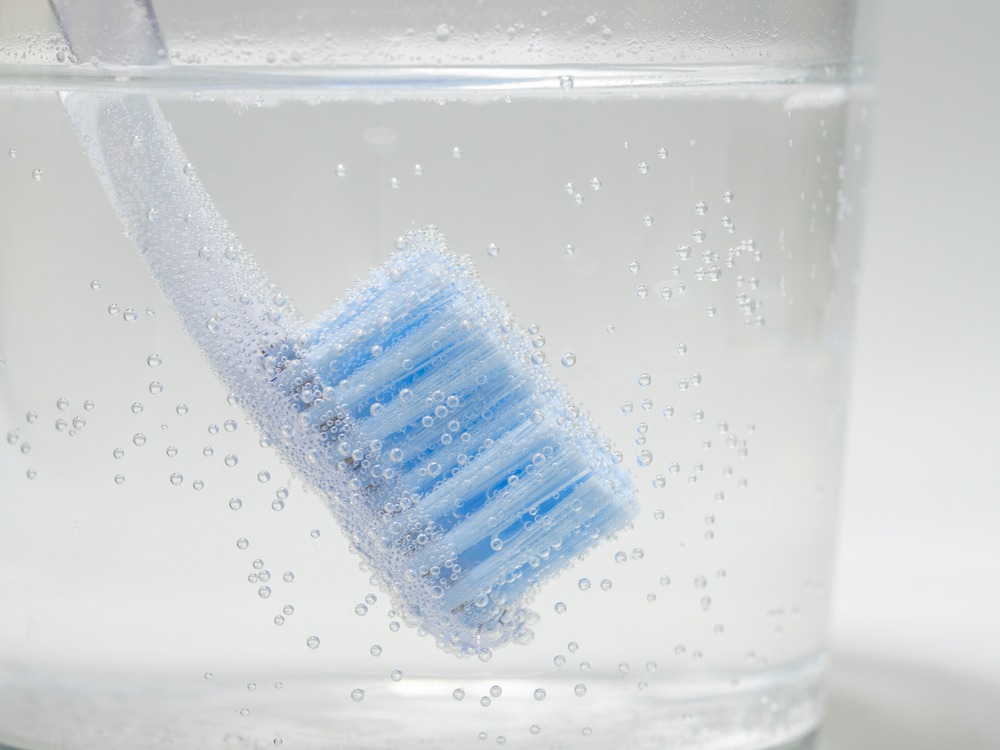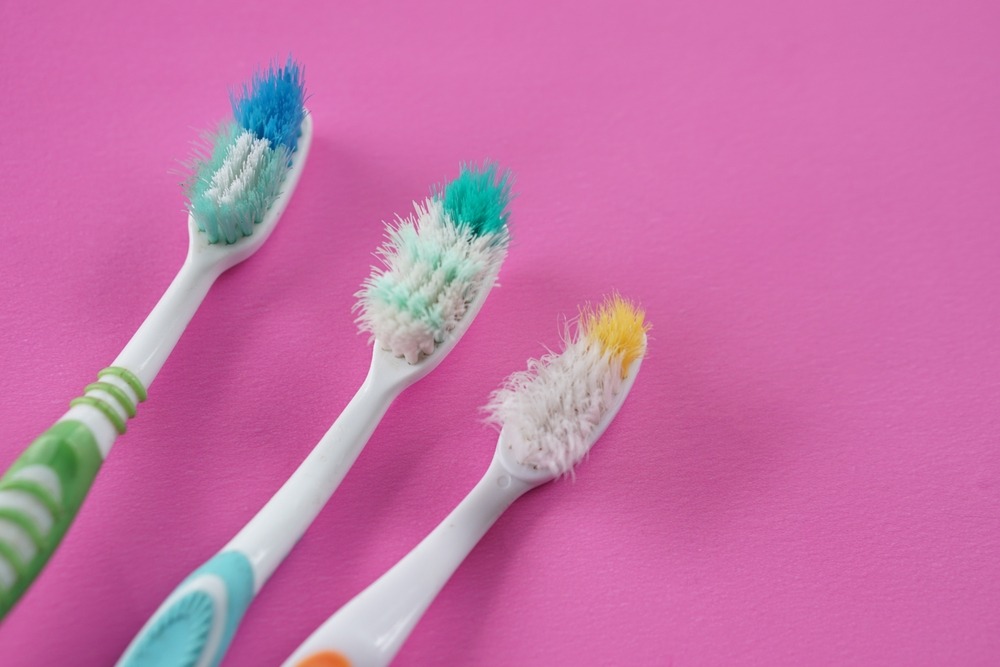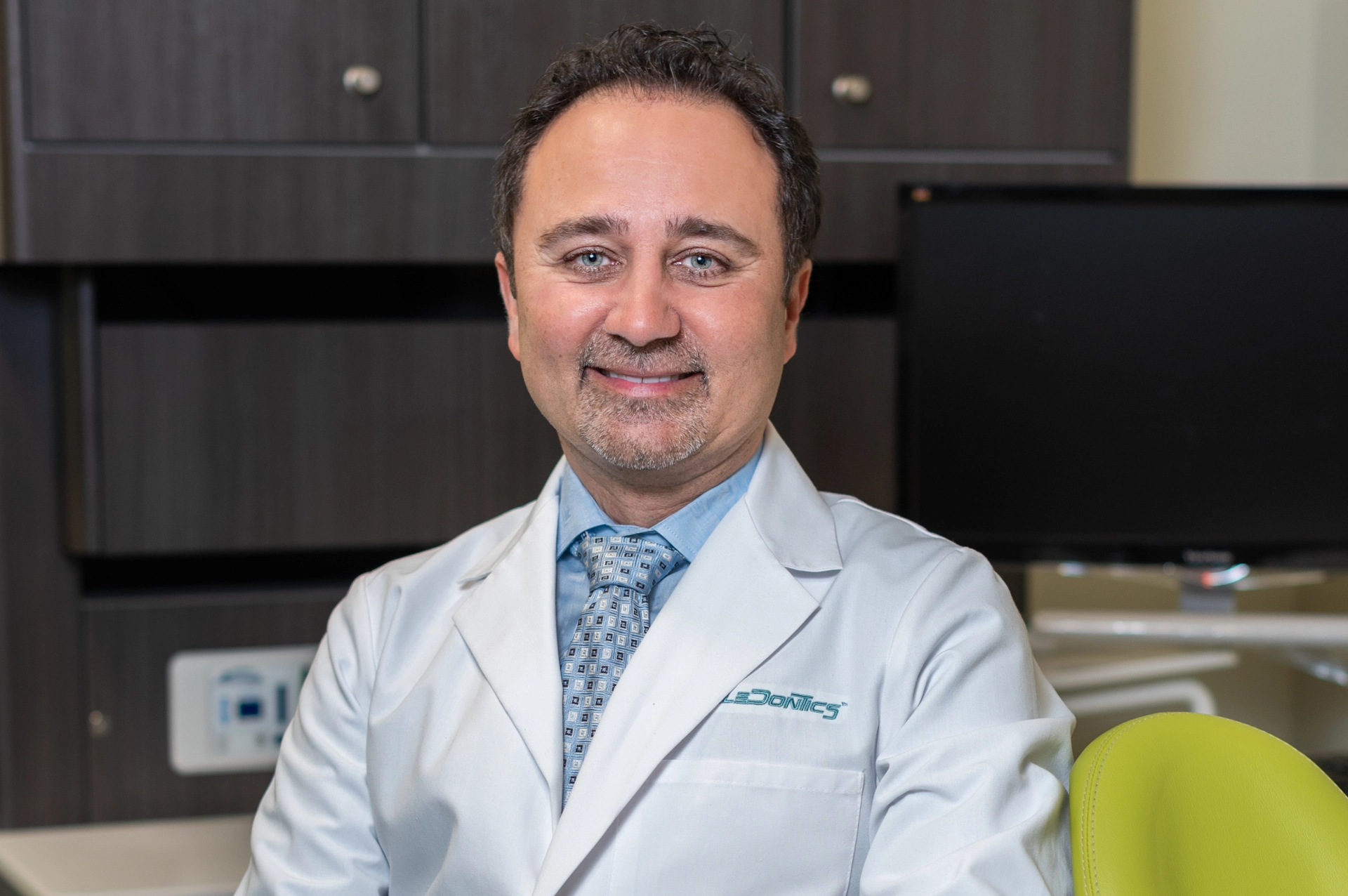
TL;DR: Your toothbrush might be harboring harmful bacteria like E. coli or strep, especially after you’ve been sick. Dr. Kami Hoss shares how to protect your health with better toothbrush hygiene, proper replacement timing, and smart storage tips.
- Toothbrushes can host up to 1.2 million bacteria
- Moist, warm bathrooms promote microbial growth on brushes
- Improper storage increases contamination risk
- Sharing toothpaste or brushes can spread illness
- Replace your toothbrush after being sick
- Strep bacteria can survive on bristles for 48 hours
- Brush daily while sick, but sanitize or replace your brush after
- Use UV sanitizing toothbrush systems for maximum hygiene
Every day, we brush our teeth with the intention of scrubbing away germs and bacteria to keep ourselves healthy. But did you know that a single toothbrush can host up to 1.2 million bacteria? That can include microbes such as E. coli, Staphylococcus, and yeast. Your toothbrush can even harbor viruses such as the flu.
When patients learn about the prevalence of toothbrush bacteria, it can be alarming. Can the same toothbrush you use to keep your teeth healthy be making you sick? The good news is that, with proper hygiene and storage, you can significantly minimize the number of germs on your brush.
In this blog, we’ll share helpful advice from Dr. Kami Hoss on proper toothbrush hygiene. Plus, we’ll answer some of the most frequently asked questions about brushing your teeth during and after an illness.
Toothbrush Bacteria 101: What’s Living on Your Brush?
Our mouths naturally contain hundreds of microbial species. Many of those germs can transfer to your toothbrush during use.
A University of Arkansas study found that up to 70% of used toothbrushes are contaminated with bacteria. Some of those are common oral bacteria. However, researchers have also found harmful pathogens, which can definitely make you sick.
The risks increase if you keep your toothbrush in the bathroom near a toilet. Fecal bacteria can be dispersed in the air during the flushing process. Some of that bacteria can find its way to your nearby toothbrush.
To further protect against bacterial growth, Dr. Hoss also recommends using a toothbrush system that incorporates UV sanitizing and drying technology. Moisture is a major contributor to germ survival on bristles, and traditional toothbrush holders do nothing to solve this issue.
Devices like the SuperMouth ULTIM8 SmartHub® help eliminate bacteria by actively drying the bristles and using UV light to sanitize your brush between uses. It creates a significantly cleaner brushing experience.
Real Patients Ask: Why do so many bacteria live on toothbrushes?
Dr. Hoss Answers: Bathrooms can be moist and warm, especially if they contain a shower. That environment is ideal for microbial growth. After brushing, toothbrush bristles can be wet, making them the perfect landing place for germs and bacteria. That’s why Dr. Hoss recommends replacing your toothbrush approximately every three months.

Can a Toothbrush Make You Sick?
It’s possible to get sick from a toothbrush, though it’s not as common as you might think. If you have a healthy immune system, your body can typically protect you from daily exposure to toothbrush bacteria. However, in some instances, toothbrush bacteria can penetrate cuts or abrasions inside your mouth.
You’re actually more likely to get sick from someone else’s toothbrush. Viruses and bacteria can spread from one toothbrush to another. This can happen if their bristles touch or if you share a toothpaste tube.
While your germ-covered toothbrush might not make you sick, it can potentially cause dental problems. Your mouth, like the other systems in your body, has a balanced microbiome. Introducing outside bacteria can throw off that balance. As a result, you can experience issues such as dental cavities or gum inflammation.
Real Patients Ask: What if you brush your teeth while sick and know there’s bacteria on your toothbrush?
Dr. Hoss Answers: You are unlikely to get reinfected with the same illness, even if you use the same toothbrush. Your body will have developed the antibodies and immunity to fight off the illness. Still, proper toothbrush care and storage can go a long way toward keeping you healthy on a long-term basis. It’s probably a smart idea to replace or sanitize your brush after your illness, just in case.
And if you want to avoid replacing your toothbrush every time you get sick, consider a toothbrush system that can sanitize itself. The SuperMouth ULTIM8’s built-in UV light and drying chamber make it easy to eliminate bacteria after every use—reducing your chances of exposure to lingering germs.
Toothbrush Care and Illness FAQs
Should I replace my toothbrush after being sick?
Yes, you should change your toothbrush after being sick. Typically, it’s best to make a switch as soon as you start feeling better.
Reinfection with the exact same bug is usually unlikely once you’ve recovered. Even so, your toothbrush could still carry residual bacteria or viruses. A new brush is a simple precaution to remove any lingering germs on your toothbrush.
Alternatively, you can opt for a UV-sanitizing toothbrush system that cleans and dries your brush between uses. This allows you to confidently keep your brush even after an illness.
How long can Strep bacteria live on a toothbrush?
Lab tests have shown that strep bacteria can live on a toothbrush for up to 48 hours under certain conditions.
Do I need to brush my teeth when I’m sick?
Yes. Don’t neglect oral hygiene just because you’re under the weather. Despite being sick, brushing your teeth can actually make you feel better. It can also prevent extra bacteria build-up in your mouth that you don’t need on top of your illness.
Better Health Begins with a Better Toothbrush
Say goodbye to bacteria on your toothbrush with SuperMouth ULTIM8! The groundbreaking SmartHub® features UV sanitizing, drying, and wireless charging for ultimate hygiene. It dries your toothbrush and kills bacteria between each use, solving the moisture problem that causes bacterial growth in the first place. Transform your dental hygiene routine with an advanced electric toothbrush that sanitizes your brush with every use. Shop now!

